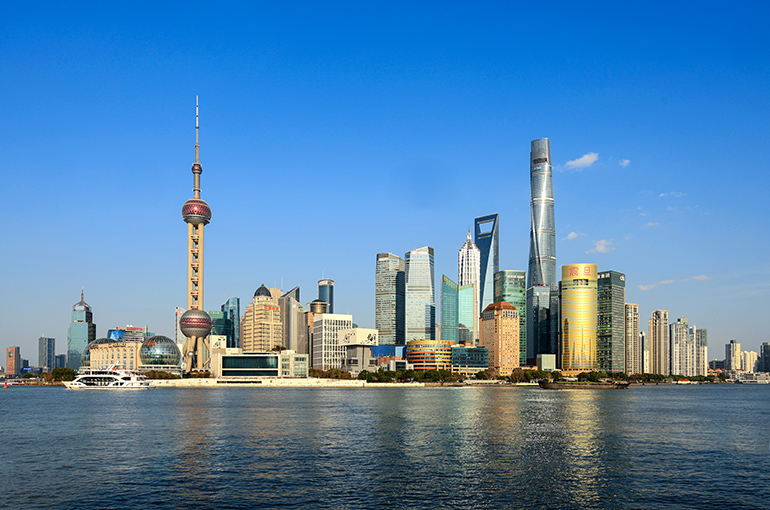 Shanghai’s First-Quarter GDP Grows 5.1%, Buoyed by Strength in Flagship, Emerging Sectors
Shanghai’s First-Quarter GDP Grows 5.1%, Buoyed by Strength in Flagship, Emerging Sectors(Yicai) April 24 -- Shanghai's economy expanded at a 5.1 percent clip in the first quarter, driven by robust performances in traditional sectors such as information technology and finance as well as emerging industries such as integrated circuits and artificial intelligence.
The city’s gross domestic product was CNY1.3 trillion (USD178.3 billion) in the three months ended March 31, Shanghai’s statistics bureau announced yesterday. GDP grew by 5 percent in the year-earlier period.
The service sector expanded 5.6 percent, accounting for 81 percent of the city's first-quarter GDP. Information technology and financial services, its flagship industries, contributed more than 60 percent to GDP growth, climbing 13 percent and 9.4 percent, respectively, from a year ago.
Shanghai's three leading emerging industries -- IC, biomedicine, and artificial intelligence -- grew 8.9 percent, 2.8 percent, and 13.2 percent, while next-generation IT and high-end equipment manufacturing expanded by over 17 percent and nearly 11 percent.
"Against the backdrop of a complex external environment and downward revisions in global economic growth expectations, Shanghai, as China's largest financial center and an important window for observing the country, has achieved steady economic growth, providing a positive outlook for the outside world," Ma Haiqian, deputy dean of the Shanghai Academy of Development and Reform, told Yicai.
China’s first-quarter GDP rose 5.4 percent to CNY31.9 trillion (USD4.37 trillion), the National Bureau of Statistics said on April 16, outstripping expectations along with a number of other economic indicators thanks to broad supportive measures.
Shanghai is focused on building itself into an economic, financial, trade, shipping, and science and technology innovation center. Through this, the city's core urban functions and international competitiveness have been enhanced, and its economic growth momentum continues to strengthen, Ma noted.
Shanghai’s value-added industrial output rose 3.5 percent to CNY918.8 billion (USD126.1 billion) in the first three months, compared with 0.7 percent for the whole of last year. Fixed asset investment climbed 6.5 percent, versus 4.8 percent in 2024.
The city’s foreign trade fell 2.7 percent to CNY1 trillion (USD137.2 billion), with exports surging 12.6 percent to CNY462.2 billion and imports plunging 12.7 percent to CNY543.1 billion.
Prices and employment remained stable in the city. Its consumer price index inched up 0.1 percent, while the unemployment rate was unchanged at 4.2 percent.
Editors: Dou Shicong, Futura Costaglione